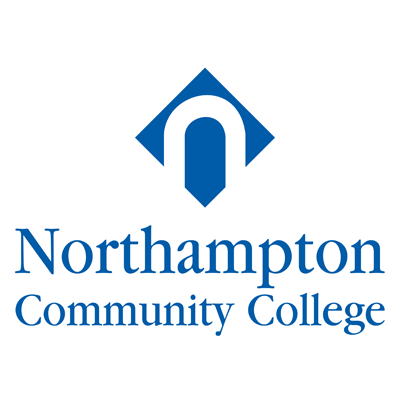Description
Northampton Community College is a public community college in Pennsylvania with campuses in Bethlehem Township in Northampton County and Tannersville in Monroe County. The college, founded in 1967, also has satellite locations in the south side of Bethlehem and Hawley. The college serves more than 34,000 students a year in credit and non-credit programs.
Northampton grants associate degrees, certificates and diplomas in more than 100 fields including arts and humanities, business and technology, education and allied health. It is one of the largest employers in the Lehigh Valley and a major educator of registered nurses, licensed practical nurses, emergency responders, radiologic technologists, dental hygienists, veterinary technologists, funeral service directors, chefs and early childhood educators for the region.
The college is also one of the largest providers of workforce training, adult literacy programs, and non-credit classes in a four-county region and the only community college in Pennsylvania to offer on-campus housing.
History
The seeds for what became Northampton Community College were planted in the 1960s by business leaders and educators from Northampton County who saw the need for a college that could provide a well-trained workforce for local employers and give area residents an opportunity to get an affordable college education without leaving the area. Early advocates for the community college included Dr. Glenn Christensen, provost and vice-president of Lehigh University; Charles Fuller, president of Fuller Paper Company and a member of the Easton Area School Board; and State Senator Jeanette Reibman.
The college took root on 165 acres (0.67 km2) of farmland in Bethlehem Township in eight modular classrooms that affectionately came to be known as "the barracks." Credit classes began on October 2, 1967. Four hundred and fifty students were expected. Eight hundred and forty-six showed up. By the following year enrollment had grown to 1,442. In 1969-70 the College earned accreditation from the Middle States Association and broke ground for five permanent buildings, which were completed in 1972. These included the College Center, a Science and Technology Center (Penn Hall), a classroom building (Founders Hall), a Business and Engineering Center (Richardson Hall) and an Arts Center (Kopecek Hall) which housed the College Theatre. In 1977, the Funeral Service and Radiologic Technologies Building opened on South Campus. It is now called Commonwealth Hall. An extensive renovation project occurred between 1986–1988, expanding the number of classrooms and renaming all of the buildings on the South Campus. In 1992, The Child Development Center opened and was named in honor of State Senator Jeanette Reibman. Also in 1992 Communications Hall was built to house the departments of Radio/TV, Art, Photography and Communications/Theatre.
In its history, Northampton has had only four presidents. Dr. Richard C. Richardson was only 33 years old when he was tapped to become the College's first president. He guided the College's growth for the first ten years. He was succeeded by Dr. Robert Kopecek in 1977. The College's academic programs, enrollment and facilities grew dramatically during Dr. Kopecek's 26-year tenure. When Dr. Kopecek retired, the trustees chose Dr. Arthur Scott, an administrator who had been on the staff for over 25 years, as the College's next leader. During Scott's nine years as president, Northampton opened a site on the southside of Bethlehem, broke ground for a new campus in Monroe County and became known for a collaborative student-centered culture affectionately described as "The Northampton Way". His successor, Dr. Mark Erickson, has strong ties to the region the College serves, having served on the staff of Lehigh University before becoming president of Wittenberg University from 2005 through June 2012. Erickson has adopted a strategic initiative called Trek to the Top that will focus on student outreach, a completion agenda, diversity and global engagement, community engagement and leadership in technology. Although different in leadership styles, all of Northampton's presidents have shared an entrepreneurial spirit and a fervent commitment to open access to education.
























